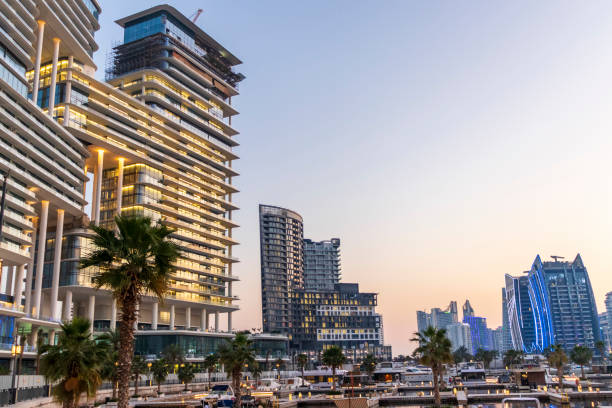Real estate events, like those organized by Sobha Seahaven, are pivotal for professionals aiming to stay informed and competitive in a rapidly evolving market. These gatherings provide invaluable opportunities for learning, networking, and professional development. This guide delves into the various types of real estate events, their benefits, and offers tips to make the most out of these engagements. Read on to discover how attending real estate events can significantly bolster your career and business prospects.
Types of real estate events
Industry conferences are large-scale events that bring together experts, innovators, and professionals from across the real estate sector. These conferences typically feature experienced speakers who share insights on market trends, emerging technologies, and current challenges. Additionally, there are workshops and breakout sessions that provide interactive learning experiences. Networking opportunities are abundant, allowing attendees to cultivate valuable relationships with industry peers.
Key features of industry conferences
- Expert Speakers: Hear from industry leaders.
- Workshops and Breakout Sessions: Engage in hands-on learning.
- Networking Opportunities: Meet potential partners and clients.
Trade shows and expos
Trade shows and expos are excellent platforms for discovering the latest products, services, and technologies in the real estate market. These events typically showcase product launches, vendor booths, and live demonstrations. Attending trade shows allows professionals to interact directly with service providers and gain firsthand experience with new innovations.
Benefits of attending trade shows
- Product Launches: Be the first to see new innovations.
- Exhibitor Booths: Interact with vendors and service providers.
- Live Demos: Experience products in real-time.

Seminars and workshops
Smaller and more focused, seminars and workshops provide deep dives into specific topics. These events are ideal for professionals looking to enhance their knowledge and skills in particular areas of real estate. The intimate setting of these events fosters active participation and interactive learning. To maximize the experience, it’s important to do some pre-event preparation, actively participate during sessions, and follow up with contacts post-event.
Maximizing seminar and workshop experiences
- Pre-event Preparation: Research speakers and topics in advance.
- Participation: Engage actively in discussions and activities.
- Follow-up: Network with attendees post-event for continued learning.
Networking events
Networking events focus explicitly on building professional connections in a more informal, social setting. These gatherings are critical for creating lasting relationships that can lead to future collaborations. Effective networking requires preparation, engagement, and follow-up. Bringing business cards, preparing an elevator pitch, and connecting with contacts on LinkedIn or via email after the event are essential strategies for successful networking.
Tips for effective networking
- Preparation: Bring business cards and prepare your elevator pitch.
- Engagement: Approach others with genuine interest.
- Follow-up: Connect on LinkedIn or via email post-event.
Virtual real estate events
With advancements in technology, virtual events have become more prevalent and offer an accessible way to engage with the real estate community. These events provide the convenience of participating from anywhere and are often cost-effective since they eliminate travel and accommodation expenses. However, they may lack the depth of face-to-face networking. Still, virtual events can be highly effective for learning and maintaining professional connections.
Pros and cons of virtual events
| Pros | Cons |
|---|---|
| Convenience: Participate from anywhere | Limited Networking: Harder to build in-depth relationships |
| Cost-Effective: No travel expenses | Technical Issues: Potential for connectivity problems |
The benefits of attending real estate events
Attending real estate events continually enhances your professional development. These gatherings are primed for knowledge expansion, offering insights into the latest market trends and best practices. Additionally, workshops and seminars at these events help participants gain new skills and further refine existing ones, making them indispensable for both personal and professional growth.
Networking opportunities
Real estate events offer a wealth of networking opportunities. Building connections with other professionals can lead to new collaborations and partnerships, which are critical for business growth. Moreover, these contacts often provide a support network that can offer advice, share experiences, and open doors to new opportunities.
Market insights
By attending real estate events, professionals can gain invaluable market insights. Understanding current trends and competitive landscapes enables attendees to stay ahead of the curve. This knowledge is crucial for strategic planning and positioning oneself competitively in the marketplace.
Tips for making the most of real estate events
Effective planning is key to maximizing your event experience. Researching the agenda, speakers, and sessions you don’t want to miss ensures you get the most out of your attendance. Additionally, scheduling meetings with clients or partners during the event can be highly beneficial. This preparation allows you to approach the event with clear goals and a structured plan.
Active participation
Being an active participant can significantly enhance your experience at real estate events. Engaging in discussions, asking questions, and taking notes are simple yet valuable actions. Actively participating ensures you absorb and retain critical information and make meaningful connections during the event.
Post-Event actions
Your involvement doesn’t end when the event does. Post-event actions are crucial for cementing the benefits of your attendance. Sending follow-up emails, connecting via LinkedIn, and planning future interactions help maintain the relationships and knowledge gained. Implementing new strategies and insights in your business further enhances the tangible benefits of attending.

Conclusion
Real estate events are essential for professionals looking to stay informed, connected, and competitive. Whether attending in person or virtually, these events offer invaluable opportunities for learning, networking, and professional growth. By understanding the types of events available and implementing strategies to maximize your experience, you can leverage these gatherings to boost your career and business effectively.
FAQs
Q1: What are the key benefits of attending real estate events?
A: Attending real estate events offers professional development, networking opportunities, and market insights. These events help you stay updated on industry trends, build professional connections, and gain a competitive edge.
Q2: How can I prepare for a real estate conference?
A: Research the agenda, speakers, and key sessions in advance. Schedule meetings with potential clients or partners and prepare questions or topics you want to discuss during the event.
Q3: What should I bring to a networking event?
A: Bring business cards, a pen, and a notebook. Having an updated LinkedIn profile and a well-prepared elevator pitch can also help you make a strong impression.
Q4: Are virtual real estate events as effective as in-person events?
A: Virtual events offer convenience and cost savings but may lack the depth of face-to-face networking. However, they can still be effective for learning and connecting with professionals.
Q5: How do I follow up after attending a real estate event?
A: Send personalized follow-up emails or connect via LinkedIn with the people you met. Mention specific points from your conversation to make the connection more meaningful and plan future interactions for continued engagement.



